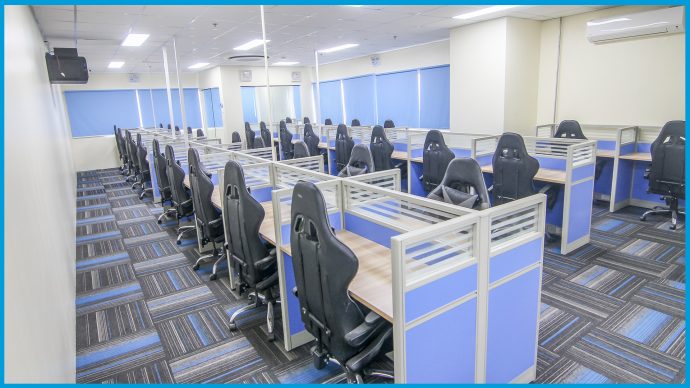As companies grow and adapt to changing market demands, the flexibility to expand or contract their workspace is a strategic advantage. In this blog post, we will explore various scalable workspace options that empower businesses to tailor their environments to match their evolving needs.
Traditional Office Spaces: A Classic Foundation
Traditional office spaces remain a cornerstone for many businesses. They provide a stable and structured environment, fostering collaboration and communication among teams. However, as companies grow, the limitations of fixed office spaces become apparent. Long-term leases, space constraints, and the associated overhead costs often hinder scalability.
Work Spaces: Flexibility in Action
Workspaces have gained immense popularity in recent years due to their flexible nature. These shared environments offer companies the ability to scale up or down quickly without the commitments of long-term leases. With amenities such as meeting rooms, high-speed internet, and communal areas, office spaces provide a dynamic solution for businesses looking for agility.

Remote Work: Embracing the Digital Nomad Era
The rise of remote work has redefined the concept of the traditional office. With advanced communication tools and collaboration platforms, employees can now work seamlessly from anywhere in the world. This scalable option allows businesses to tap into a global talent pool, reduce overhead costs, and adapt to the changing preferences of the workforce.
Hybrid Models: Finding the Perfect Blend
Many businesses are adopting hybrid models that combine elements of both traditional and remote workspaces. This approach provides employees with the flexibility to choose where they work while maintaining a physical office for essential functions. Hybrid models offer a scalable workspace options that aligns with the diverse needs and preferences of a modern workforce.
Flexible Lease Agreements: Breaking Free from Long-Term Commitments
For businesses that still prefer a dedicated office space, flexible lease agreements have become a game-changer. These agreements allow companies to scale their workspace based on demand, whether it’s adding new team members or adapting to economic fluctuations. This approach mitigates the risks associated with long-term leases, offering the best of both worlds.
In the dynamic landscape of modern business, scalability is not just a luxury; it’s a necessity. The ability to adapt to changing circumstances, whether it’s rapid growth or unexpected challenges, is a competitive advantage.
